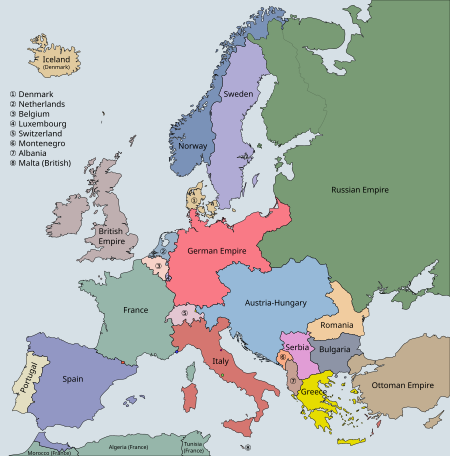
German-Polish relations have been in a crisis, and the climate just keeps getting uglier, as exemplified by recent developments. For instance, Alice Weidel, spokesperson for Alternative for Germany (AfD), Germany’s third-strongest political force today, called in a tweet the area of former East Germany a “Central Germany” – thus implying that territories which today belong to Poland are German lands. This has sparked outrage: Poland’s former PM Beata Szydło, in response, said the AfD could in the future power over all of Germany, thus creating a “dangerous scenario for Europe”, because, she claims, it is a party “whose leaders openly negate the existing borders.” She added that German Chancellor Olaf Scholz has recently demanded the abolition of the right of veto within the EU and asked: “Should Europe go in this direction? Towards a German-dominated federation?” This provocation from a German political figure takes place in the context of a rising Polish campaign against Berlin.
Meanwhile, two families of Polish WWII victims are suing German companies Bayer and Henschel for €4.3 million over the persecution of Polish businessmen during the Nazi occupation of Poland. Brzozowska-Pasieka, head of the War Compensation Foundation (Fundacja Odszkodowań Wojennych), the Polish organization which represents the claimants, claims that these lawsuits are groundbreaking because they have been filed against private companies instead of the German state. Further claims on behalf of other families are being prepared. Commenting on the lawsuits, deputy culture minister Jarisław Sellin, lent his support, saying that “German companies which used forced laborers and actually participated in crimes during World War Two were never legally held accountable for what they did.”
Considering that Polish officials back these initiatives, one must see them as also part of a larger trend and context. Last month I wrote on the legal campaign Warsaw has been launching against Berlin for wartime reparations. It is accompanied by harsh anti-German rhetoric, which often describes Germany’s prominent role within the European Union as a “Fourth Reich”.

Nations of Europe (plus north African colonies) before the outbreak of World War 1. Colours indicate colonial holdings. Hover over land masses for more information. Micro-states (Andorra, Monaco, San Marino, Vatican City) are not labelled. (Licensed under CC BY-SA 4.0)
Polish discourse on the issue is not without its dose of hypocrisy: while criticizing Ukraine for celebrating genocidal Nazis, as recently as 2019, with Polish President Andrzej Duda’s support, Warsaw opened ceremonies honoring the Holy Cross Mountains Brigade of the National Armed Forces – an underground force which, in the end of Second World War, collaborated with the Nazis in their anti-Soviet struggle. This was denounced by Poland’s chief rabbi as “dangerous revisionism”. Moreover, Warsaw so far has refused to publish state archives which would expose the degree of Polish collaboration with the Nazi persecution of Jews. It is no wonder the German ambassador to Poland, Thomas Bagger, warned the country not to “open Pandora’s box”.
Behind the weaponization of WWII resentments lie also geopolitical goals. As I wrote in September 2022, Washington has apparently been promoting Warsaw’s ambitions regarding regional hegemony as mainly a means to counter Berlin, Poland in turn also benefits from this situation. For a while, Warsaw has, for example, been urging Washington to support the Three Seas Initiative (3SI) as a Western “counterweight” to Chinese investments in “critical infrastructure” – as Polish Foreign Minister Zbigniew Rau and his Romanian counterpart, Bogdan Aurescu, both wrote in a June 2021 piece published in Francis Fukuyama’s “American Purpose”.

Already in 2020, during the “Defender Europe 2020” military exercises, it had become clear that Poland aspired to become the main stronghold of American military presence in Eastern Europe – and the current conflict in Ukraine, since February 2022, has opened a window of opportunity in that regard.
By doing so, Poland aspires to establish itself as a new EU geopolitical center, while challenging Germany’s leading role in the continent. From a German perspective, this is ironic in itself, considering the fact that Berlin’s contribution to the EU budget has been the highest of any other member state, and therefore one could argue that the more recent EU member states such as Poland itself have been able to implement sustainable development policies largely thanks to Berlin’s disproportionate financial injections into the European budget. Therefore, according to this reasoning, Warsaw basically strives to get the maximum financial and economic benefits from its EU membership, at the expense of its “allies”, Germany especially.
For decades, Poland has arguably been on the path of refusing to contribute with the building of an intra-European system of relations. Warsaw pursues exclusively its own interests and shows no interest in building pan-European cooperation within a framework of mutual respect. Germany and France today are potentially forces for strategy autonomy in the European bloc (at least up to a certain point); Poland, on the other hand, is perhaps the main promoter of European “alignmentism”.
Warsaw, for instance, actively opposed the (now gone) Russian-German gas pipeline Nord Stream 2. The pipeline’s still unexplained explosion, denounced by journalist Seymour Hersh as an act of sabotage carried out by Washinton, remains an open wound in Germany – and a German investigation into allegations that Poland could have been used as a hub for the sabotage only make German-Polish tensions even worse. The Polish National Prosecutor’s Office said in a statement that such suspicions are “not supported by the evidence.”
In any case, Polish-German and intra-Europeans tensions in all likelihood will keep building up, because the Polish government weaponizes anti-German feelings, as it also does with Russophobia, in its rewriting of history. These tensions mirror a short-circuit in the European narratives as well as the continent’s own ideological and geopolitical contradictions.
Uriel Araujo is a researcher with a focus on international and ethnic conflicts.









